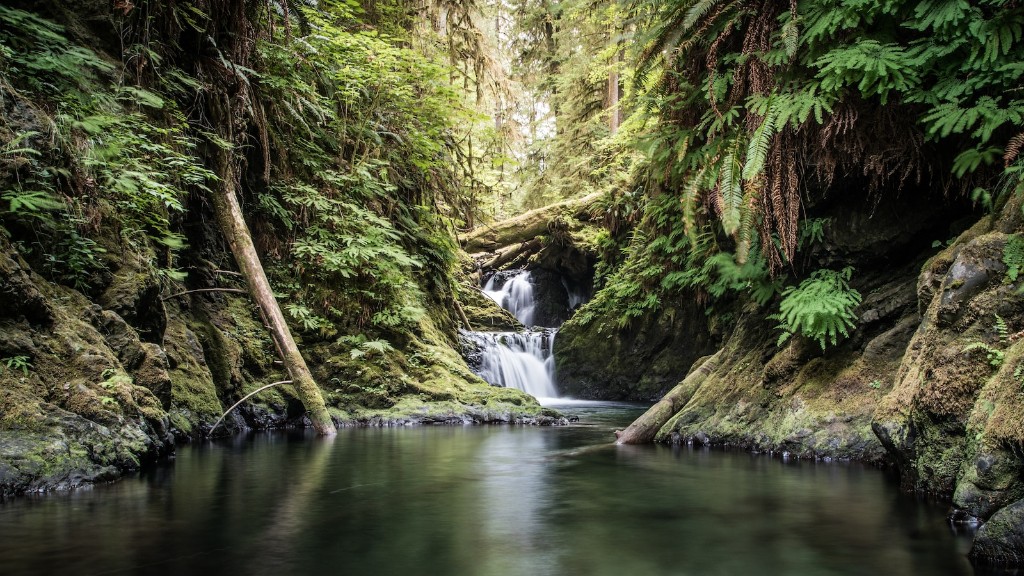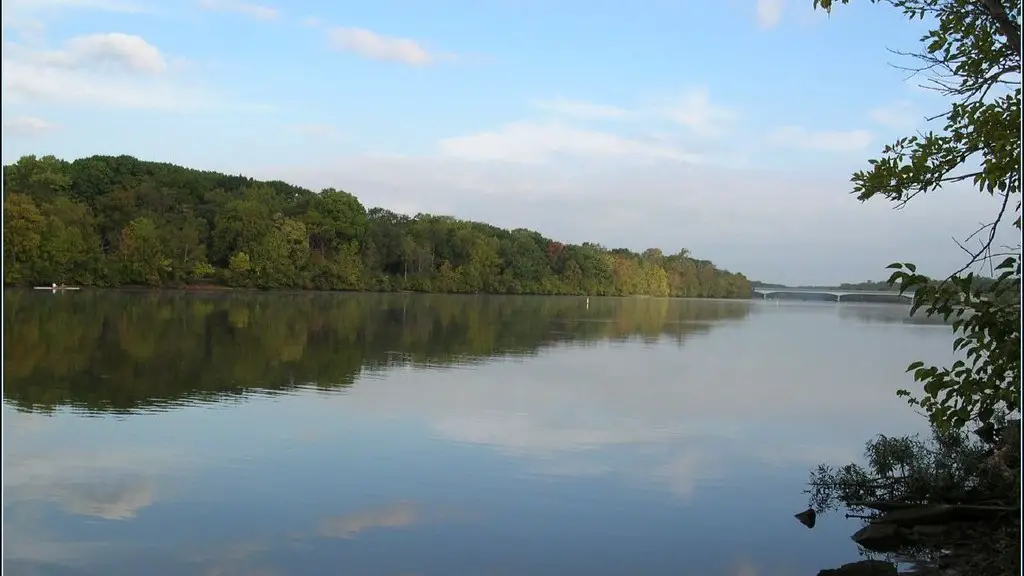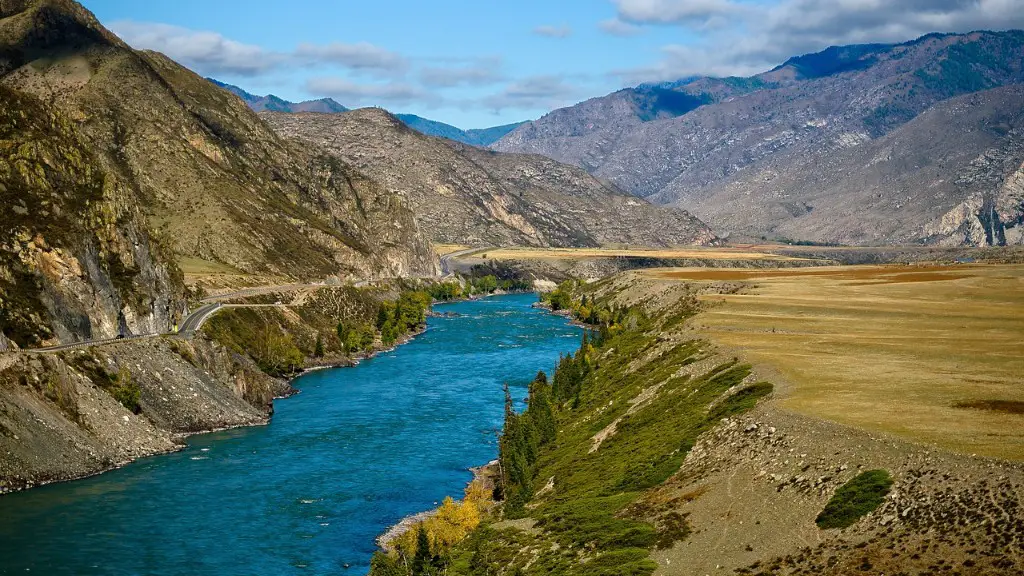Introduction
The Mighty Mississippi River is one of the most essential lifelines of America and its history. Its vast reach from its northernmost points in Minnesota to its outlet in the Gulf of Mexico has sheltered, fed, and provided resources for the growth and prosperity of the area for hundreds of years. Beyond the obvious benefits of water access, there are diverse and far-reaching geographic benefits of the Mississippi River that have brought economic and social gain to the area.
Recreation
The Mississippi River offers a source of recreation and leisure activities such as fishing and water sports. The river also offers miles of hiking trails and plenty of access points for visitors. In addition, the river has become an important area for bird-watchers and conservationists, with many species of migratory birds and other animals depending on the river corridor for habitat.
Transportation
The Mississippi River is one of the most important shipping and transportation resources in the nation. It allows for easy and cost-effective transport of goods and materials up and down the river. Such transportation is highly beneficial in reducing production costs, traffic congestion on highways and offers a convenient way to get goods from different parts of the country. In addition, the river provides cruise and excursion boats with wonderful views and experiences.
Agriculture
The Mississippi River has also had a major positive impact in the local agricultural economy. The river is an invaluable irrigation source for the crops grown in the area and its fresh water helps to support livestock operations. The river has contributed substantially to the U.S.’s agricultural industry, and many of its cities are reliant on the river for their economic well-being.
Ecosystems
The Mississippi River is home to a diversity of ecosystems and wildlife. This helps provide a balance to the region’s natural environment. The river is a vital habitat for several endangered species, such as the Pallid sturgeon, which relies on the river for its survival. It is also a popular spot for bird watching, as species such as the Bald eagle, Great Blue Heron, and American White Pelican can be found along the banks.
Economy
The river has been an integral part of the development and growth of the city economy. The river has provided employment opportunities, attracted investment and helped generate tourism. Many large cities in the region have also benefited from the river, as it helps facilitate trades and transportation. In addition, the river’s abundance of resources and recreational activities has made it a popular tourist destination.
Conservation
Despite the many advantages of the Mississippi River, there is still a need to ensure its conservation. While water pollution is not as rampant as it was in the 20th century, it is still an issue. In addition, there could be commercial development around the river that may threaten its delicate ecosystem. Conservation organizations and initiatives are striving to ensure that the river is protected for future generations.
The Mississippi River has a well-developed navigational system that allows for efficient and safe passage of boats. This system involves improving and widening the waterway, deepening rivers and locks, and improving safety on the river. This system has been beneficial in allowing the shipping and transportation of goods up and down the river.
The Great Flood of 1927
The Great Flood of 1927 was one of the worst floods in the history of the United States. This flood devastated the Mississippi River Valley, and forced hundreds of thousands of people to relocate. In response, the government developed a series of flood control dams and other infrastructure, which help to manage flood threats on the river. The disaster was a defining moment in the history of the Mississippi River and the region.
Locks and Dams
The Mississippi River has a series of locks and dams along the waterway that help to control the flow of water, reduce flooding threats and provide access to boat traffic. This network of infrastructure has been beneficial in allowing the river to be navigable, and it has helped to reduce the risk of catastrophic flooding in the region.
Floodplain Management
The government has taken measures to minimize the risk of flooding on the Mississippi River. This includes floodplain management initiatives such as building levees and floodwalls, and implementing stringent rules for construction in the area. These changes have helped reduce the likelihood of flooding and have allowed for better development in the river valley.
Conclusion
The Mississippi River is a vital resource for the region it occupies. Its presence has had a number of notable benefits to the people, environment and economy of the area. It provides a secure means of transportation, is a great source of recreation for visitors, and has been beneficial in providing employment opportunities, reducing flood risk and contributing to the future development of the area.



